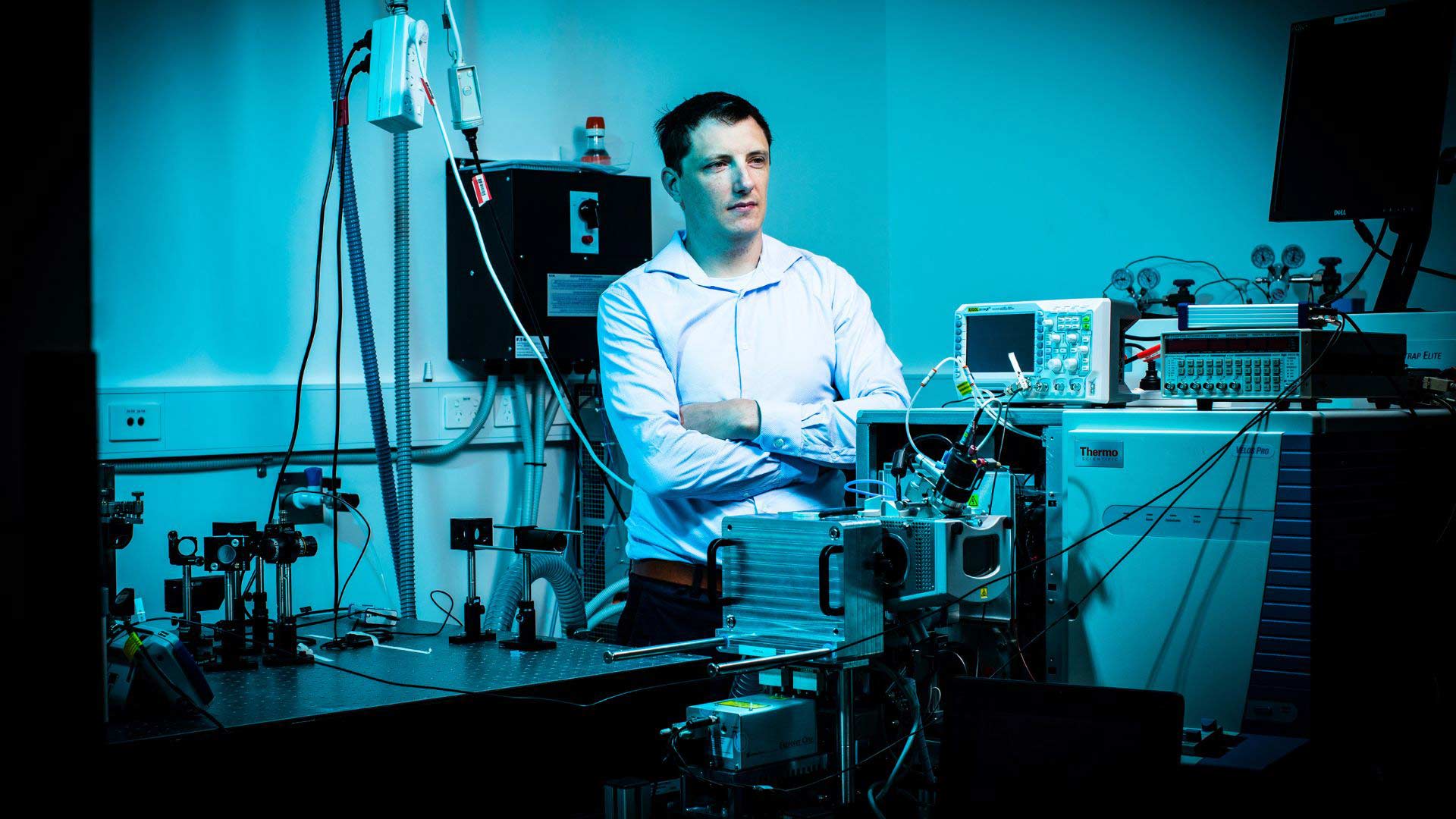June 17, 2022
Innovative lipidomics research wins $1.85M grant
Dr Shane Ellis awarded prestigious international Human Frontier Science Program Grant
University of Wollongong (UOW) scientist Dr Shane Ellis and a team of international colleagues have been awarded a highly competitive international Human Frontier Science Program (HFSP) Research Grant for a research project investigating the role of lipids (fats) in synaptic diversity and function. This project can shed light onto the roles of lipids in ageing and neurological diseases such as Alzheimer's and Parkinson’s Disease.
The brain is made up of millions of synapses (connections) that play a major role in determining how the human brain processes and stores information. However, synapses can vary significantly at the molecular level and this could alter how they precisely function.
The project has been awarded $1.85 million (US$1.3 million) funding over three years to develop a series of new lipid analysis strategies based on mass spectrometry that will allow scientists for the first time to dissect the individual membrane composition of specific synapses with high resolution and to uncover the interaction between lipids and particular proteins.
The project, Spatial and deep neurolipidomics to reveal synapse diversity, is a research collaboration between scientists from UOW, University of Vienna (Professor Robert Ahrends), Catholic University of Leuven (Dr Steven Verhelst) and the Leibniz Institute for Neurobiology (Professor Michael Kreutz).
Dr Ellis is an Australian Research Council Future Fellow in the Faculty of Science, Medicine and Health. He leads a research group at UOW’s Molecular Horizons that is focused on developing innovative technologies based on mass spectrometry imaging to image the distribution of lipids throughout diseased tissues and cells.
“We are trying to understand synapses (connections). Are all synapses the same? Probably not. Within a single neuron (nerve cell) there can be thousands and we want to be able to understand this diversity. How this might influence brain signalling and function,” Dr Ellis said.
“In this project we want to understand the connections between nerves in the brain and understand how diverse they are on the molecular level. We are particularly looking at a family of molecules called lipids, fat molecules, which are completely under-studied in this context.
“What my group develops are imaging techniques that detect and image hundreds of different molecules, such as lipids, simultaneously and with extremely high sensitivity.”
As part of the international team, working in laboratories across multiple continents, each scientist will bring a unique set of skills to the project led by Robert Ahrends, a Professor of Analytical Chemistry at the University of Vienna (Austria).
The UOW team will cover technical lipid analysis on a single synapse level, the University of Vienna the lipidomics, systems biology and computational bioinformatics skills, the Catholic University of Leuven team will provide the chemical labelling techniques, while the Leibniz Institute for Neurobiology brings expertise in neurobiology and function.
The project aims to provide a proof of concept of the new techniques that can be applied to a variety of studies. Dr Ellis believes the advances in spatial lipidomics through this research will have broad implications for future studies in health and disease.
“The project is about exploring whether this approach is viable. Once it works we can start studying ageing in neurological diseases and how these are all driven on the molecular level,” Dr Ellis said.
“The techniques we have developed are adaptable, not just to synapses but also to single cell studies. We might be able to study diversity amongst cancer cell populations.”
ABOUT THE HFSP RESEARCH GRANT
The Human Frontier Science Program collaborative research grants are awarded for a broad range of projects under the “complex mechanisms of living organisms” theme and support innovative projects with global collaboration among international teams of scientists.
The grants are highly competitive with success rates of less than four per cent. In March, the International Human Frontier Science Program Organization awarded 32 HFSP grants with a total sum of about EUR 33.4 million. Since the beginning of the Program in 1989, 28 HFSP awardees have been awarded a Nobel Prize.
